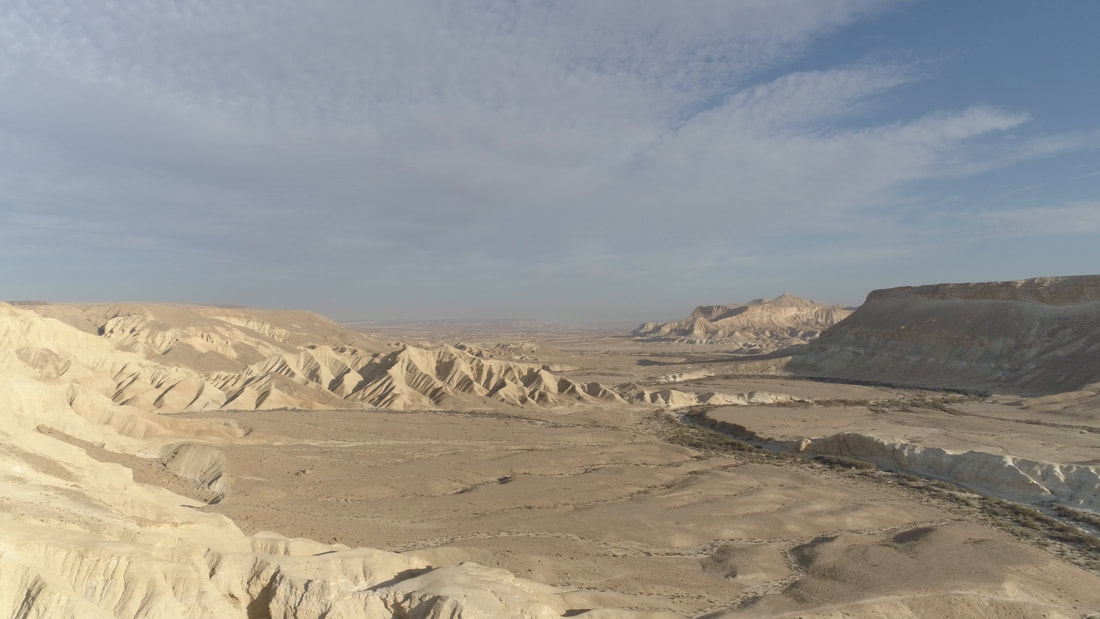|
The journey of Moses took 40 years. It seems to have been a much more tedious journey than that of Abraham, and it is very easy to empathise with Moses’ “murmuring” travelling companions. The Hebrews left Egypt in a blaze of glory. Their years under a cruel oppressor ended with the first Passover, and they crossed the Red Sea on dry land. Their “song of the sea” in Exodus 15 rings with joy and confidence in a delivering God. But, by the time the Hebrews reached the Wilderness of Zin, they had had enough of desert privations. They wanted to return to slavery in Egypt, saying bitterly to Moses and Aaron, "If only we had died by the hand of the Lord in the land of Egypt, when we sat by the fleshpots and ate our fill of bread; for you have brought us out into this wilderness to kill this whole assembly with hunger." (Ex 16:3)
The miseries of slavery had been forgotten. The past was now viewed selectively and seemed a lot safer and more secure. In contrast, the future they faced with Moses was unknown and comfortless. The Hebrews wanted to reverse their journey. As I have often done. I have often dabbled in the wilderness and then rushed back to the known comfort zones of my own Egypt. How often have I started Lent, for example, with a determination to advance on my journey! How often have I resolutely put behind me the many obstacles to my spiritual progress only to lose heart at the first hurdle! Like Pharaoh’s chariots, my wheels were clogged “so that they turned with difficulty” (Ex 14:25). When the vastness of the wilderness opened up before me, slavery suddenly seemed a lot more attractive. Despite their yearnings for Egypt’s fleshpots, in Exodus 17:1 we read “From the Wilderness of Zin the whole congregation of the Israelites journeyed by stages, as the Lord commanded”. There is no standing still – God asks us to keep moving. As the Hebrews did – but in the next breath we are told that they began to quarrel with Moses again. There was no water to drink, so they asked Moses “Why did you bring us out of Egypt, to kill us and our children and livestock with thirst...Is the Lord among us or not?” Again, the Lord provides, but by the time they reach Rephidim the Hebrews are quarrelling again. So it goes on throughout the Exodus journey – a rollercoaster of ups and downs, of enthusiasm and grumbling, of devotion to God, and worshipping a golden calf. Amid all this, we have the giving of the Ten Commandments, the Ark of the Covenant, the revelation of God’s name and the renewal of God’s covenant with his people. Even within sight of the Promised Land, the people lost heart. The spies they sent to reconnoitre the land came back with reports of a gigantic and powerful people – “to ourselves we seemed like grasshoppers, and so we seemed to them” (Numbers 13:33). The old refrain went up, “Would that we had died in the land of Egypt! Or would that we had died in this wilderness! Why is the Lord bringing us into this land to fall by the sword? Our wives and our little ones will become booty; would it not be better for us to go back to Egypt?” (Num 14: 2-3). Only Caleb and Joshua remonstrated with the people. In anger, God prolonged their sojourn in the wilderness so that none of those alive at that time, with the exception of Caleb and Joshua, would cross into Canaan. The 40 years wandering seems pointless until one realises what was achieved in that time. The people Moses led out of Egypt had been enslaved for four centuries. The Hebrew tribes of Israel entered Egypt voluntarily, probably about 1600 B.C., at the invitation of Jacob’s son Joseph, then a high official in Pharaoh’s administration. They initially prospered, and their numbers multiplied over three centuries. However, “Now a new king arose over Egypt, who did not know Joseph” (Ex 1:8). Under his rule, Hebrews were disenfranchised and forced into slave labour in Egypt’s massive building programme, and in the noxious conditions of the turquoise mines. Their spirit was utterly broken after centuries of bondage. The mixed multitude which set out from Egypt was in no condition to take possession of the land promised to it. In the wilderness years, Moses brought God’s law to the people and welded them together in disciplined monotheism. These “stiff-necked” and vacillating people have been a source of immense encouragement to me: however often they stumbled and longed to turn back, they nonetheless kept moving – urged relentlessly forward by God. They must have longed to stay longer at each oasis – especially at the large oasis of Kadesh Barnea between the deserts of Zin, Shur and Paran where they camped for many years. But, in their subsequent wanderings, the Hebrews were transformed. The murmuring mob became a great nation and the covenant made with Abraham was fulfilled. The Biblical desert is a place of passage and purification. In the desert landscapes of our souls we must learn that God is with us at every stage of the journey. He is God of the wilderness as well as God of the land flowing with milk and honey. However, to reach the latter, we must traverse the former. We, too, need to cast off our inertia and our false gods if we are to enter into the Promised Land. Comments are closed.
|
AuthorHelen Gallivan is co-founder with John Dundon of New Pilgrim Path. This blog is adapted from ther book, Dawn without Darkness, published by Veritas. Archives
April 2022
Categories |

 RSS Feed
RSS Feed